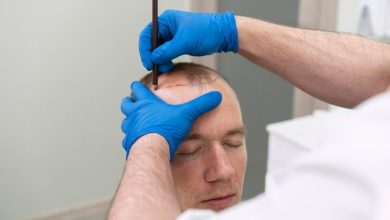5 Connection Between Anxiety and Addiction

It’s normal to feel some nervousness in certain situations. It is an inherent aspect of the body’s stress-induced fight-or-flight reaction, which prepares us to handle danger.
But a lot of addictions include anxiety as a major contributing aspect. When people use drugs and alcohol to treat their anxiety symptoms, a link between anxiety and addiction is usually made. Sadly, chronic substance usage weakens the brain and physiological systems that assist in reducing anxiety feelings, which leads to a progressive rise in anxiety.
To interrupt the cycle of anxiety symptoms and self-medication, the person will eventually need treatment. This causes a compounding issue. To Reduce these chances It’s crucial to understand the relationship between anxiety and addiction. So here we will discuss 5 connections between anxiety and addiction.
1. Self-Medication
When someone is feeling sad or anxious, they frequently turn to drugs or alcohol to help them relax, go to sleep, numb themselves, or calm down. Self-medicating to relieve anxiety is dangerous since the effects of drugs or alcohol wear off quickly, making them anxious in return.
Moreover, alcohol and drugs cause the brain’s receptors to change. Over time, only the activation of these receptors by medicines and alcohol can lead to a tranquil state. Additionally, tolerance sets in, necessitating greater and greater doses of alcohol and medicines to alleviate anxiety symptoms.
2. Dual Diagnosis
They are determining whether an individual self-medicated due to anxiety or whether substance addiction was the cause of the anxiety illness can be challenging. There are cases of people abusing cocaine who later develop anxiety as a result.
An extensive evaluation to identify all symptoms and problems is the first step in any effective treatment for anxiety and addiction. Then, to achieve the best possible degree of rehabilitation, treatment for both addiction and anxiety must be provided concurrently.
Relapse risk is very significant, so getting help from Renaissance Recovery is recommended. This is where professionals can help you. They can help you find therapeutic options if necessary and provide advice on how to deal with anxiety without drinking.
3. Avoidance Coping:
In an attempt to feel better or block out their anxieties, nervous people may turn to drugs or alcohol. While this may help temporarily, it may worsen the situation over time.
It might be challenging to break the cycle of relying on these drugs whenever they experience anxiety because of the potential for addiction. The relationship between substance use and anxiety becomes more robust and difficult to break as a result of this ongoing cycle.
4. Environmental Factors:
Addiction and anxiety are influenced by the people and situations in our lives, including stress, negative experiences, and social circles. Difficulties, such as traumatic experiences throughout childhood, interpersonal conflicts, or financial difficulties, can exacerbate anxiety and addiction.
Addiction issues can also be exacerbated by the people we spend time with, such as friends who push us to use drugs or living in an area where drugs are easily obtained. In order to prevent relapse into drug or alcohol use, it’s critical to establish good coping mechanisms for stress, locate supportive companions, and talk to someone about these issues.
5. Neurochemical Imbalance:
Addiction and anxiety disrupt the normal functioning of brain neurotransmitters. Serotonin, dopamine, and GABA are among the brain chemicals that are frequently malfunctioning in people with anxiety disorders, which can exacerbate anxiety.
Addiction to alcohol or drugs can also disrupt these hormones, influencing our emotions and cognitive processes. People with anxiety may be more likely to develop drug or alcohol addictions due to this link in brain chemistry.
Conclusion
The relationship between addiction and anxiety is sophisticated. Their respective effects on one another are distinct. People can heal themselves if we recognize and address this link. Long-term recovery and self-determination can be achieved by patients undergoing treatments that address both addiction and anxiety concurrently.
Establishing a kind and understanding environment is crucial for those who are juggling addiction and anxiety. Asking for assistance might be difficult for them due to the stigma associated with these problems, which may also worsen their self-perception.
We can make it simpler for people to reach out and receive the help they require to recover by raising awareness, educating people about these issues, and eliminating the stigma.




